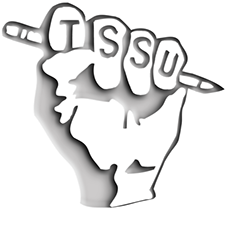SSJC Letter in Solidarity with the Mi'kmaq Nation and the Enactment of Indigenous Rights in Canada


October 22, 2020
To those empowered to take action on supporting Indigenous Rights,
Prime Minister Justin Trudeau
CC: Minister of Fisheries and Oceans
NS Minister of Fisheries and Aquaculture
NS Minister of Justice
Minister of Crown–Indigenous Relations
Minister of Public Safety
On behalf of the members of the Teaching Support Staff Union’s (TSSU) Solidarity and Social Justice Committee, we write to express condemnation of the attack on Indigenous sovereignty in enacting Treaty rights that have been upheld by the Supreme Court of Canada’s 1999 Marshall decision. We acknowledge the violation of Treaty and human rights being experienced in Mi’kmaki, but also the precedent this sets for other Indigenous nations expressing their rights in this moment and into the future. As an organisation dedicated to upholding fairness , we see your (in)actions on this matter as a violation of not only Canadian and Mi’kmaq law, but all of the statements you have made regarding the building of equality for Indigenous communities and commitments to reconciliation.
The SSJC acknowledges the recent injunction announced to protect Mi’kmaq rights to fish. However, we must also recognise the scale of violence the Mi’kmaq people had to face before receiving basic protection of their rights. If this is what must be faced by Indigenous nations seeking to enact their rights in all cases across Canada, it is very clear that some other mechanism needs to be in place to achieve any form of reconciliation.
A similar demand has recently been put forward by Jody Wilson-Raybould, who states that “a framework is needed to recognize issues that Indigenous peoples face in terms of being denied their rights and having to go through the courts to prove that their rights exist.” This is particularly the case for the Mi’kmaq who have gone to court over many years for recognition of these rights.
The Peace & Friendship Treaties guarantee the rights of Mi’kmaq to catch and sell fish, as affirmed by the
Supreme Court of Canada in the R v. Marshall case in 1999. As set out in Marshall, the Mi’kmaq have a right to fish for a “moderate livelihood.” On September 18, 2020, Sipekne’katik First Nation announced its own self-regulated livelihood fishery, as a sovereign people. As was the case in Esgenoopetitj (Burnt Church), the Mi'kmaq have a conservation management plan that is not to be controlled by the Department of Fisheries and Oceans. Licenses and tags were distributed during a peaceful ceremony and celebration, while more than 50 non-Indigenous fisher boats surrounded the harbour, forming a blockade and infringing on the legal treaty rights of Mi’kmaq peoples.
That evening, Mi’kmaq fisher fleets were just metres offshore checking lobster traps when non-Indigenous fisherpeople began to chase them and fire flares at their boats. Mi’kmaq fisherpeople have faced other forms of harassment and discrimination, including damage to their boats and vehicles, stolen fishing gear, and cut buoy lines. They have also been denied goods such as fuel, bait, and accommodations at Nova Scotian businesses. Since then, Mi’kmaq peoples have been terrorised by white fishermen in the form of arson, physical assault, and harassment. While this has occurred, the RCMP supported and negotiated on behalf of non-Indigenous fishermen in achieving their goal of destroying Mi’kmaq livelihoods by appearing to “stand by.” To be clear: inaction by the RCMP is action in that it upholds a racist and colonial status quo. The spokesperson for the Nova Scotia RCMP has gone so far as to state the violation of Mi’kmaq safety and rights on their own territory as “not a police issue.”
The Bay of Fundy Inshore Fishermen Association issued a statement claiming that Sipekne’katik’s issuance of licenses is “not based in Canadian law” and that “in the absence of law and order good people can be forced to take the law into their own hands and the responsibility for that falls squarely on Minister [of Fisheries] Jordan and her predecessors who have not enforced the rules” (emphasis added). Furthermore, white fishermen are now calling for a one-year moratorium on Mi’kmaq fisheries to allow for a legal definition of “moderate livelihood.”
Those basing their claims to end or disrupt Mi’kmaq rights in conservation frameworks have also wasted hundreds of lobster as part of their attacks, thereby nullifying their argument. Furthermore, such claims marginalise the thousands of years of conservation enacted by Mi’kmaq peoples since time immemorial. It is time - more than time - that the DFO and governments at all levels recognise the experience and knowledge of Indigenous peoples in regards to their own territories.
All of these actions and inactions speak to a racist and colonial response that is allowing terrorism to continue on Indigenous land. Treaty rights are Canadian law. This racism is not only unacceptable, it is illegal. All threats and attacks from non-Indigenous fisherpeople must be stopped and prosecuted to the fullest extent of the law.
We demand that all levels of government including the Office of the Prime Minister and the DFO negotiate in good faith to ensure that the Marshall Decision is respected, based on the inherent rights and treaty rights of Mi’kmaq people to hunt, fish, and gather, as protected by Section 35 of the
Canadian Constitution. This includes agreeing to self-management by the Mi'kmaq rather than continuing control by the DFO. It is the duty of the Canadian provincial and federal governments to uphold the inherent rights of Indigenous peoples, as per section 35 of the Constitution, the Peace & Friendship Treaties, and attendant case law.
We call on your governments to take immediate action to:
These actions must be taken on Mi’kmaq territory, as well as on all Indigenous lands.
We look forward to hearing the response of your governments,
Solidarity and Social Justice Committee
Teaching Support Staff Union
ssjc@tssu.ca
